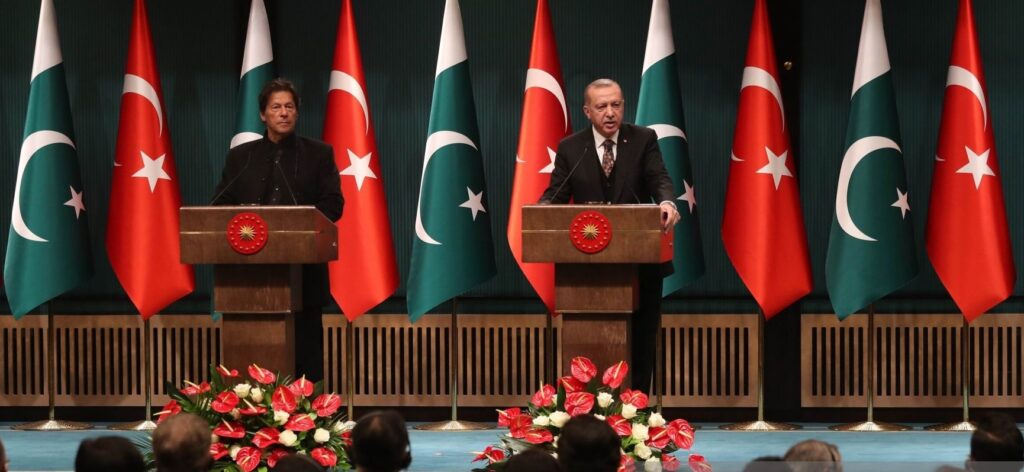
Pakistan continues to be on FATF's grey-list
Pakistan continues on the grey-list of terror financing watchdog. Pakistan was grey-listed in 2018. However, Pakistan has managed to evade being blacklisted by FATF. Only 2 countries are blacklisted right now, viz., Iran and North Korea. The announcement was made by FATF president Marcus Pleyer in a virtual press conference from the headquarters of FATF in Paris. FATF president said Pakistan needs to further demonstrate that action is being taken against UN-designated terrorists. Pakistan has addressed 30 out of the “34 action planned items”, said the FATF President.
Pakistan which is going through a major financial crisis has to wait until the next meeting of the watchdog, scheduled in February of next year.
While Pakistan remains under increased monitoring (Grey list), a few new entrants have also emerged. Turkey, Mali and Jordan are the 3 new countries who have been grey-listed by the watch dog. This comes as bad news to Turkey which is already going through a financial crisis.
After FATF’s announcement, there are 23 countries which have been blacklisted. Interestingly, Afghanistan is not a country which is blacklisted even though it has been taken over by the terror group Taliban. FATF President informed that Afghanistan’s position was discussed during the plenary meeting. It was decided that Afghanistan would not be grey-listed or blacklisted for the time being. However, a watch will be kept on the governance of Taliban.
FATF also asserted that UNSC’s resolution (UNSCR 2593) which was adopted in August, 2021 has to be adhered to by the Taliban. UNSCR 2593 was adopted under the presidency of India at UNSC.
FATF president said that the Afghan territory should not be used to threaten or attack any other country, or to give shelter or finance to any terror organisation.
Effects of being grey-listed
While being grey listed by FATF does not come with any direct fines or repercussions, it entails a wider financial impact. A country under the watch list of FATF is considered non-conducive for investment by investors. The safety and security of investment is always at a higher risk due to increased terror funding. Many investors have left Turkey already owing to its political interference in the running of industries and its Central Bank. It is observed that Pakistan after being grey-listed in 2018 has suffered a loss of 30 billion dollars. The GDP of Pakistan is estimated to be approximately 280 billion dollars for Financial Year (FY) 2021.
The grey-listing of Turkey comes as a blow to Pakistan as well. Turkey has been a deterrent in efforts of blacklisting Pakistan. Turkey, China and Maldives are the only three countries against the blacklisting of Pakistan.
Financial Action Task Force (FATF)
FATF is a terror financing watchdog headquartered in Paris, France. It was established in 1989 by the G7 group with an aim to develop policies which combat money laundering around the world. In 2001, it expanded its horizon to include terror financing in its mandate following the 9/11 attacks on USA. FATF started maintaining a grey-list and a blacklist since 2000.
FATF started with 16 members but today has 39 members. India is a member of FATF since June, 2010.
Members of FATF meet 3 times in a year to discuss measures to curb money laundering and terror financing. The meetings are held every year in February, June and October.
FATF’s recent meeting
FATF’s recent meeting was held over three days. Other than adding more countries to the grey-list, FATF has also removed 2 countries from the grey-list, viz., Botswana and Mauritius.
FATF also observed and warned against increased online propaganda by Al-Qaeda and Islamic State. The watchdog also expressed “grave concern” over terror attacks in Afghanistan, Iraq and other regions like Africa and South Asia, in a special statement issued at the end of the plenary meeting on Thursday.
